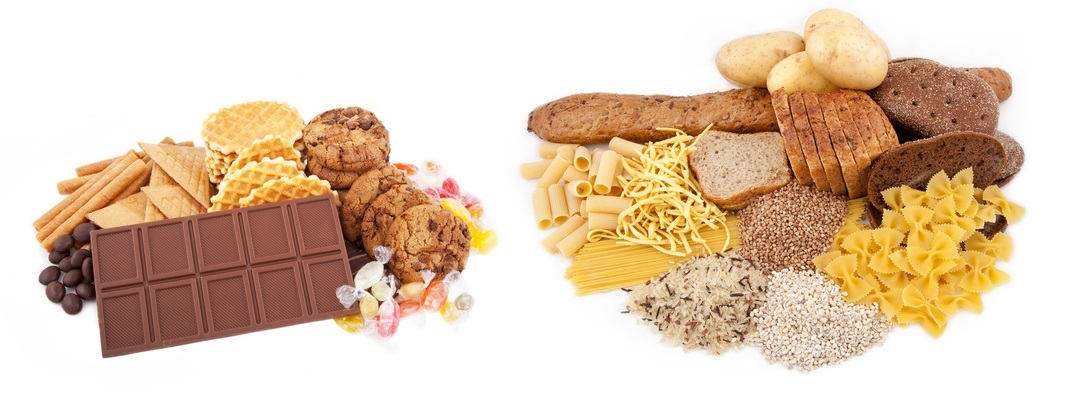Myths about Carbohydrates

Recent years, there are many rumours about eating carbohydrates (CHOs). These include:
- cancer patients should not eat CHOs as this will feed the cancer cells and make them grow;
- eating CHOs is the major cause of becoming fat or even overweight;
- don’t eat CHOs at dinner time and eat more lean meat so as to gain muscles and to lose weight; and
- eating too much CHOs will cause adverse effects on one’s intelligence.
How true are these rumours? Why do people believe in these?
Now let us understand more about CHOs from a medical point of view:
What are CHOs and their uses?
CHOs are nutrient substances found in food for human and animal consumption. CHOs are divided into two categories:
(i) the simple/free sugars - table sugar, cane sugar, sugar cubes, syrup, treacles, honey, coconut sugar and added- sugar fruit juice
(ii) the complex/starchy ones such as bread, rice, potato, noodles, starchy plants etc.
All CHOs can be broken down in human body into simple “glucose” or “sugar” and are used as energy source by us. Together with the intake of other nutrients including fat and protein, our bodies can maintain daily activities, growth and repair. This means that CHOs are essential nutrients to every human body.
How much CHOs do we need?
Apart from the basic requirement to maintain daily functions, it all depends on how much energy we consume every day. Early in 1997, the World Health Organisation (WHO” has published a report of a joint Expert Consultation on the topic “CHOs in Human Nutrition” in collaboration with the Food and Agriculture Organisation of the United Nations. It was mentioned in the section “Carbohydrate through the life cycle” that - In developed countries, surveys indicate that children have higher intake of carbohydrate from more sources than adults. In those countries, the diet consumed by children would seem to be more beneficial to them. In these situations, having at least 55% of carbohydrate energy from a variety of sources is the optimum. Besides, in 2015, WHO has published a guideline on “Sugars intake for adult and children” and recommended that:
“In both adults and children, reduce the intake of free sugars to less than 10% of total energy intake and a further reduction of the intake of free sugars to below 5% of total energy intake may be helpful to prevent obesity and various non-communicable diseases (NCDs) ”.
From a registered dietitian’s point of view, it is advised that unless the person needs a low CHO diet in the short term for disease control, all individuals should have 50% of total energy intake from CHOs (with complex CHOs as the majority energy supply) .
As CHOs are part of the important nutrient source from our diets, “a diet with very low CHOs” is not generally recommended. We should be aware of a reasonable CHOs intake on a per meal and per day basis and make the right choices of CHOs. With an appropriate level of intake and a healthy cooking method, CHOs consumption is not the main reason for weight-gain. For example, eating rice or noodles will not make you gain weight. But if someone eats more than the body requires, or uses an abundant amount of oil for cooking, then this surely contributes to weight increase. Also, eating wholemeal or high fiber CHOs could make you feel full more easily. On the contrary, foods rich in simple sugar would make you feel hungry easily and therefore you will eat more. Furthermore, no evidence-based study shows that CHOs are harmful to cancer patients by promoting the growth of cancer cells, nor would they make people react more slowly.
If you are not sure how much CHOs you should eat, consult your Dietitian. So no worries, eating CHOs is fine!





